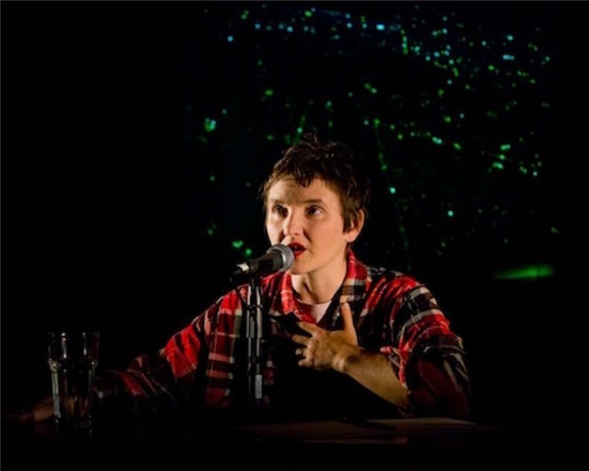Translate Page

How one contemporary performing arts institution is giving artists the support they need
---
For traditional theatrical productions, tech week serves as a critical period when lights, sound, set, and all kinds of hiccups are hammered out. But mention tech week or -- gasp! -- an out-of-town tryout to a contemporary performing artist, and she'll probably cackle. The sad fact is, the time, money, space, and staff needed for technical tinkering or preview performances are unavailable to most avant-garde artists; a tech day (or sometimes hour) has to suffice. That means a lot of quick fixes and blind hope.
But Lumberyard, a hub for contemporary performing arts (a genre that defies easy categorization like dance or theatre) is changing that, both at its soon-to-open Catskill, NY home and its five-week NYC festival, which kicked off June 1 at The Kitchen.
"You don't have rehearsal, tech week, and performance in a continuous flow in contemporary performing arts," says Adrienne Willis, Lumberyard's executive and artistic director. "It's piecemeal: projects are built in residencies or on-site, sometimes without a consistent company. So we developed a production incubator."
The process was created in 2010 in Maryland, when Lumberyard was known as the American Dance Institute. Artists chosen for a visit enjoyed a true tech week, complete with housing, food, and unlimited access to its theatre there and ADI's resources. This allowed them to integrate design elements and preview the show in front of an audience in preparation for runs already booked elsewhere.
Demand for the program exploded. "When we started, we wanted to fill a need," says Willis. "Contemporary performing artists are often expected to fit into an existing structure of how more traditional work is made, especially technically. That's hard to do and still celebrate experimentation. This way we can help presenters who also struggle to support technical artists' needs. The pieces are truly ready when the artist gets to the venue."
Dedicated to filling this void, ADI morphed into Lumberyard and relocated to New York City. The Catskill venue includes space for housing, rentals, and residences. Willis hopes the institution will eventually be able to accommodate artists at different stages of production.
For now, audiences can check out the Lumberyard's eclectic program at The Kitchen. Upcoming offerings include Cynthia Hopkins' stripped-down multimedia work exploring losing her belongings in a catastrophic house fire; Vicky Shick's segmented piece contrasting intimacy and discomfort; Kyle Abraham's personal offering about love, loss, and yearning; and Raja Feather Kelly's wacky dance musical based on an SNL episode with guest Kanye West. The lineup illustrates the organization's boundary-pushing taste, as well as its ability to handle a wide range of technical requirements. "We aim to stay flexible instead of making artists comply with a model that doesn't work with their specific needs," Willis says.
To that end, Willis stacks her team with industry standouts. Take Jason Wells, Lumberyard's director of production, who previously served as head electrician at The Yale School of Drama. Since his network is chock-full of tech talent, he's able to call in experts any time. "That sets us apart,” says Willis. "It also gives artists confidence to create what they want. They don't need the 'right' language to express it to a crew themselves. They can lean on us, and we can help them realize their vision."
Lumberyard wants to buck the myth that creatives and crew are antagonistic. "We aim to dismantle the strife that can come from unrealistic expectations on both sides," says Willis. "That's why we like to have conversations right from the start. We set the tone that we're here as collaborators as needed. Or, if you're bringing in designers, we will support them. Internally we have a philosophy of 'yes.'"
Willis hopes this prototype will inspire other contemporary performing arts institutions to follow Lumberyard's lead -- or at least ask for the organization's help. "The long game would be that this would be a realistic model for others, too," she says. "It used to be artists who needed tech week. Now presenters are also calling us saying, 'We want to work with these artists, but we need a tech week.' We can make that happen."
---
TDF MEMBERS: Go here to browse our latest discounts for dance, theatre, and concerts.
Lauren Kay regularly covers dance for TDF Stages.
Top image: Cynthia Hopkins in Articles of Faith, photo by Mena Brunette.